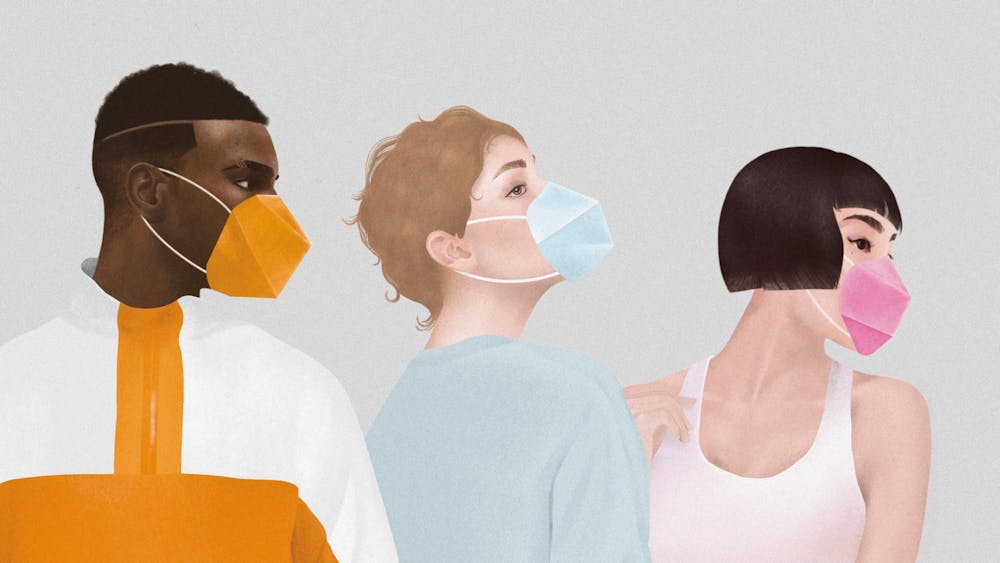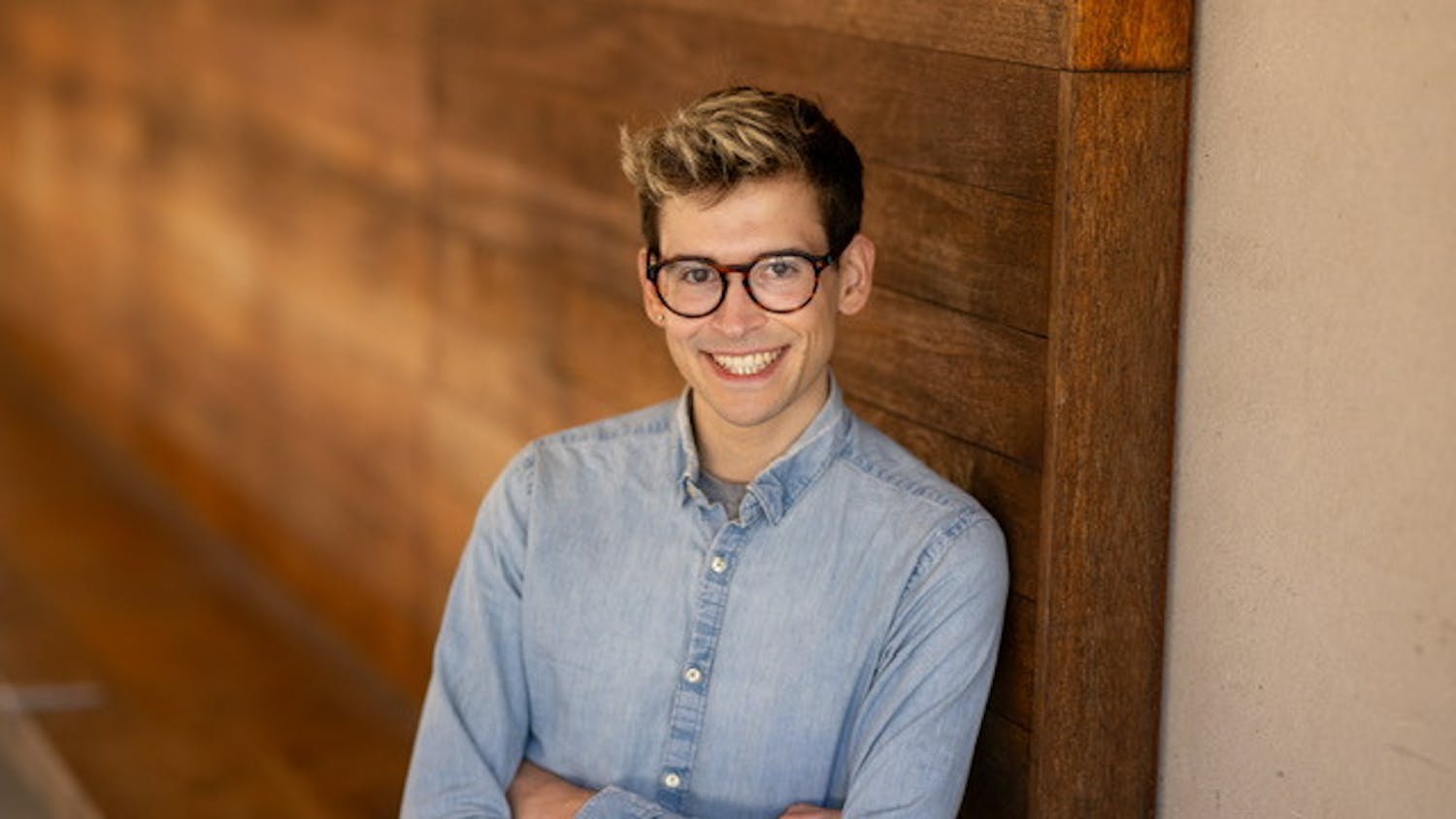Jiangmei Wu, an IU assistant professor of interior design, started to design a better-fitting face mask using origami in January after a suggestion from her brother. Now, the improved design will be used by three business partners to manufacture masks for the general public.
Tyson Rugenstein, senior technology commercialization manager in the IU Innovation and Commercialization Office, said Wu approached the office in late March so she could get a provisional patent and find commercial partners. The three partners so far have verbally agreed to use Wu’s design to manufacture masks, he said.
Wu said her brother, who lives in China, gave her the idea. He called her in January to ask her to buy masks for him because there was a mask shortage in China.
“He thought that I lived in a small town and that I would have no problem finding a mask,” she said.
Wu said she could not find any online or in the stores. Her brother proposed that she instead use her origami skills to create masks using a design that was better fitting because typical three-pleat masks did not fit him well.
Wu said she was hesitant about the idea because she rarely wore masks before the pandemic. However, after a friend lent her a mask, she decided to try to create her own. It only took her a few hours to come up with the first designs she thought worked, she said.
Rugenstein said the difference between Wu’s design and others is that hers is that it has a rigid form, unlike masks with soft materials. Wu was able to obtain a provisional patent for that reason.
The design is constantly improving, Wu said. She is researching materials to find something more effective than paper, which is what she used for the first design. She has been using items that have filtration qualities, such as vacuum bags.
“It’s an ongoing project,” she said. “It’s not done or finished in any sort of way.”
She said she has been in contact with Meltblown Technologies, a company that manufactures and distributes spill control products. She said the company uses filtration technology that can be used for masks. The company has enough to fill large orders, so it is a potential material, Wu said.
“I want something that is effective,” she said. “I don’t want to have something that is the equivalent of a regular kind of mask.”
Wu said she is also looking into custom masks for an individual's facial features using computer algorithms.
Samaritan Biologics, a medical products creation and distribution company in South Carolina, used Wu’s design to create about 20,000 masks. Most have been given to the surrounding community.
Jerry Chang, a managing partner at Samaritan Biologics, said he was interested in a mask for everyday people in a pinch that was better than cloth masks and bandanas but would not take personal protective equipment materials from the medical industry.
Samaritan Biologics first partnered with Paper Cutters Inc. to make a face mask out of paperboard, but the design was flawed and would have been relatively ineffective, Chang said. He said it looked like an index card.
“I thought, ‘Well, I make origami-type animals and toys and things like that for my kids, I’m sure that there’s a way that we can make this work better,’” he said.
Chang searched online and found Wu’s design. After partnering with her, Samaritan Biologics and Paper Cutters Inc. created the 20,000 masks out of a card stock material that Chang compared to that of a takeout carton. One side is coated so it is more water-resistant.
He said he wants to look at more filtration materials to make it a more functional mask rather than one made out of card stock.
Chang said people reacted well when they distributed the first batch.
“They’ve been absolutely thrilled and excited,” he said. “It shows that there’s an immense willingness and need for these types of items.”
Rugenstein said there is potential to market masks using Wu’s design. They could be sold from store shelves or online, he said. By partnering with multiple companies, there are many choices.
“Could it be that they sell a kit and the kids can help draw art on it and make it personalized?” he said. “Do we do a do-it-yourself kit, or do we have the finished product?”




